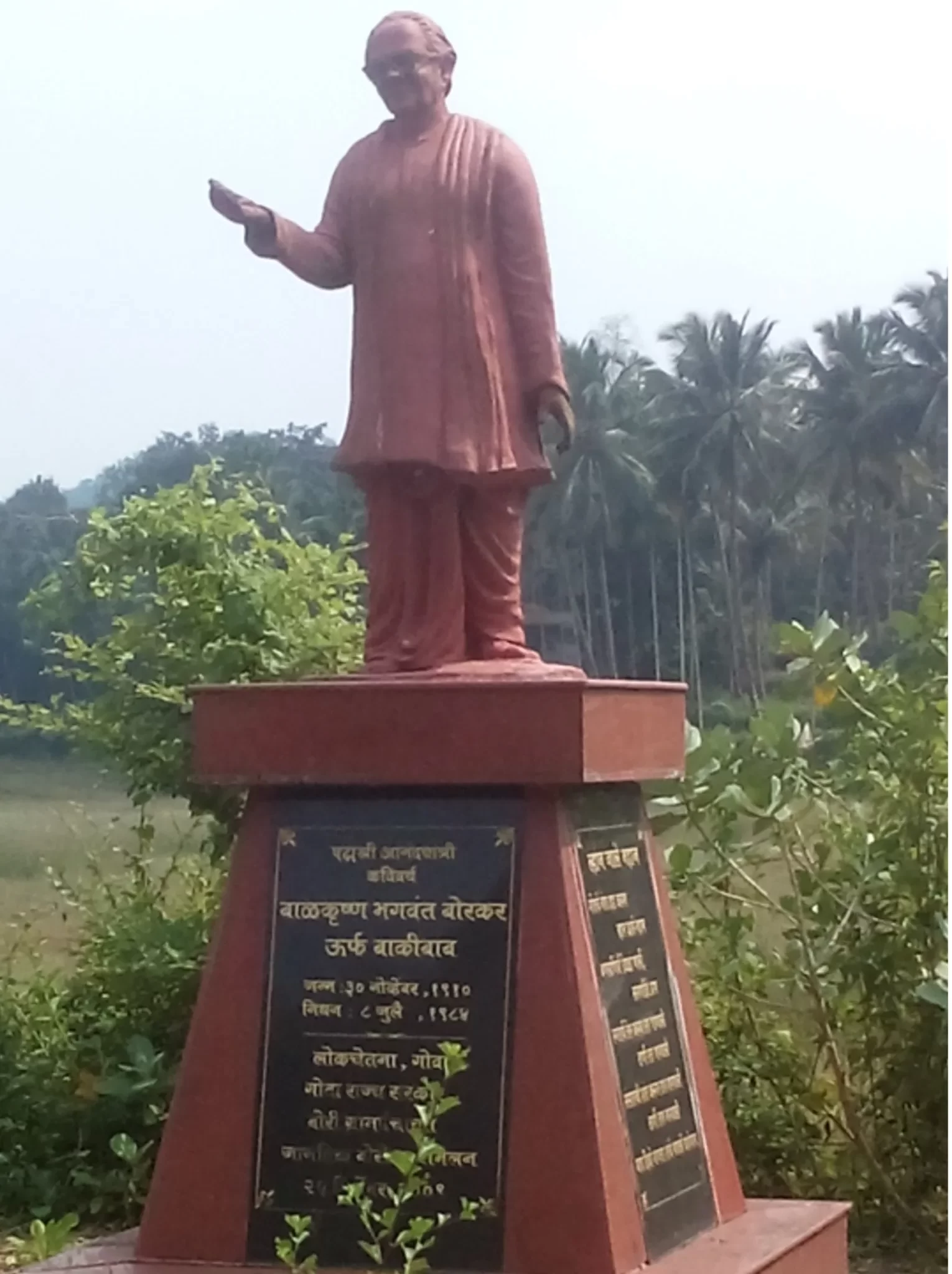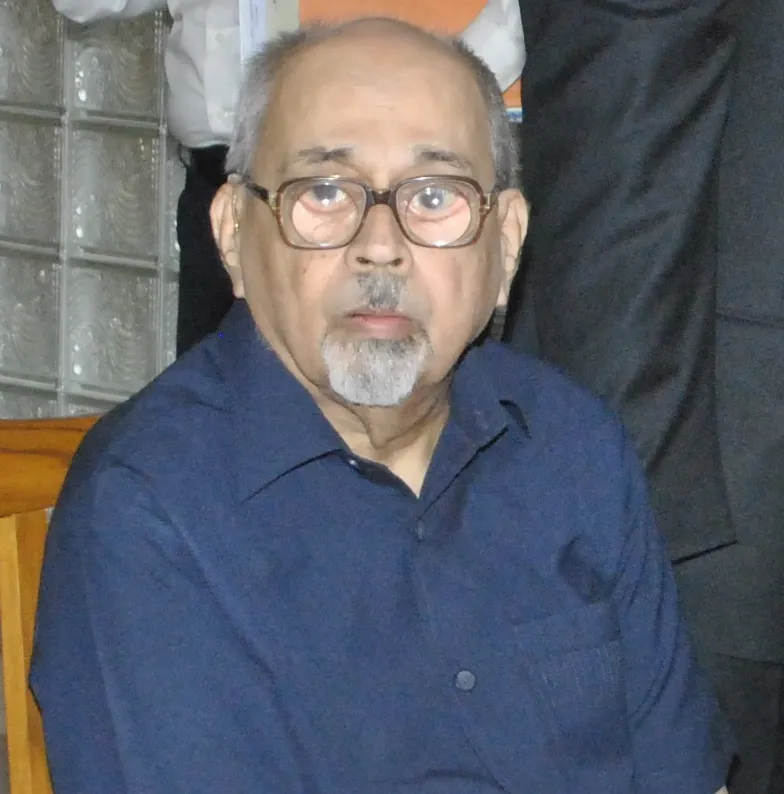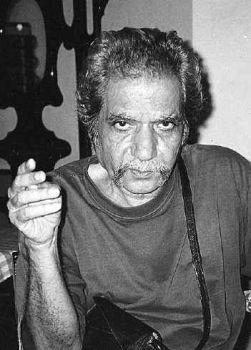Celebrating Marathi Poets Legacy
Marathi Poets Legacy in the Modern Era
In the evolving landscape of Marathi literature, the journey from its classical roots to the modern era unfolds a narrative rich with innovation, introspection, and a deep-seated connection to both the natural world and the complexities of human emotion. This second part of our exploration, “Marathi Poets Legacy,” delves into the contributions of poets like Balkavi (Balakrishna Bhagwant Borkar), Mangesh Padgaonkar, Arun Kolatkar, and Grace (G. D. Madgulkar). These poets, each in their own unique way, have expanded the horizons of Marathi poetry. Moving beyond the foundational themes of devotion and social reform, they have woven a contemporary tapestry of romanticism, modernity, skepticism, and a celebration of the mundane, reflecting the evolving spirit of Maharashtra.
As we venture into their worlds, we uncover how their innovative approaches and thematic diversity have not only enriched Marathi literature but also mirrored the changing societal landscape, offering fresh perspectives and resonating with audiences across generations.
Marathi Poets Legacy: The Lyrical World of Balkavi (Balakrishna Bhagwant Borkar)

(https://hinduinfopedia.in/wp-content/uploads/2024/03/_भगवंत_बोरकर_Balakrishna_Bhagwant_Borkar_wikipedia_C-e1711019776600.webp) [Credit https://www.wikipedia.org]
Biographical Background
Balakrishna Bhagwant Borkar, known as Balkavi, was born in 1910 in Goa, then part of Portuguese India. His upbringing in the lush landscapes of Goa and later life in Maharashtra significantly influenced his poetic vision, deeply rooted in nature and human emotions.
Major Works and Literary Style
Balkavi’s poetry is renowned for its lyrical beauty and romantic imagery. He was adept at capturing the essence of nature and love in his works, making him a beloved figure in Marathi literature. His notable works include collections like “Balkavyanchya Kavita” and “Nirupan.” His style blends romanticism with the simplicity of everyday life, making his poetry accessible and cherished by many.
Philosophical and Cultural Influence
Balkavi’s poetry often reflected a deep philosophical understanding of life, imbued with a sense of joy and a celebration of the natural world. His works encouraged readers to find beauty in the mundane and seek a deeper connection with the world around them, promoting a cultural appreciation for nature and human emotions in Marathi literature.
Contemporary Relevance
Balkavi’s romanticism and nature-centric poetry inspire modern Marathi poets and their legacyand songwriters, reflecting a universal longing for harmony with nature. His works encourage a renewed appreciation for the natural world, aligning with contemporary environmental movements.
Legacy
Balkavi’s influence extends beyond the realm of poetry; his works are a testament to the power of words in celebrating the beauty of life and nature. His legacy is preserved in the hearts of readers who find solace and joy in his verses, and his contributions to Marathi literature are celebrated for their lyrical beauty and philosophical depth.
Mangesh Padgaonkar

(https://hinduinfopedia.in/wp-content/uploads/2024/03/8811996937_8ce3174fa4_o_Mangesh_Padgaonkar_flickr_C.webp) [Credit https://flickr.com]
Biographical Background
Mangesh Padgaonkar was born in 1929 in Maharashtra, India. His early life in a culturally rich environment nurtured his love for literature and poetry, shaping his path as one of Marathi literature’s most beloved poets.
Major Works and Literary Style
Padgaonkar’s poetry is marked by its versatility, ranging from romantic to reflective, often interwoven with humor and social commentary. His major works include “Kavita Manasanchya, Manasasathi” (Poems for the Mind, For the People) and “Salaam,” showcasing his adeptness at capturing the complexities of human emotions and societal issues.
Philosophical and Cultural Influence
Padgaonkar’s writings reflect a deep engagement with the existential and the everyday, offering insights into the human condition and the nuances of social dynamics. His poetry often served as a mirror to society, urging readers to introspect and embrace a more empathetic and understanding worldview.
Contemporary Relevance
Padgaonkar’s reflections on modernity, love, and social issues continue to resonate with readers and writers, influencing contemporary Marathi poetry and literature. His work, blending humor with introspection, is celebrated for its accessibility and emotional depth, speaking to the complexities of modern life.
Legacy
Mangesh Padgaonkar’s legacy in Marathi literature is immense. His poems continue to resonate with audiences, reflecting the enduring relevance of his insights into human nature and society. His work not only enriched Marathi literature but also left a lasting impact on the cultural and philosophical discourse in Maharashtra.
Arun Kolatkar

(https://hinduinfopedia.in/wp-content/uploads/2024/03/Arun-kolatkar_gowri-ramanathan-hindu_wikipedia_.jpg) [Credit https://www.wikipedia.org]
Biographical Background
Arun Balkrishna Kolatkar was born in 1932 in Kolhapur, Maharashtra. Coming from a family with a strong artistic background, Kolatkar was exposed to literature and the arts from an early age. This, combined with his formal education in art, significantly shaped his literary path, leading him to become one of the most innovative poets in Marathi literature.
Major Works and Literary Style
Kolatkar’s poetry is known for its wide-ranging themes, from the mundane to the profound, marked by a distinctive use of language and imagery. His most celebrated work, “Jejuri,” is a collection that explores the complexities of faith through a series of poems centered around a pilgrimage site in Maharashtra. His style is characterized by its accessibility, wit, and sharp observation, making him a pioneer in modernist poetry in Marathi.
Philosophical and Cultural Influence
Kolatkar’s work often delved into the exploration of faith, skepticism, and the search for meaning in a rapidly changing world. Through his innovative use of language and form, he challenged traditional conventions and invited readers to question established norms and beliefs. His poetry, while deeply rooted in Indian culture and landscapes, resonated with universal themes, bridging the gap between the local and the global.
Contemporary Relevance
Kolatkar’s innovative poetry, exploring faith, skepticism, and the mundane, has a profound influence on modern Indian literature, inspiring writers to experiment with form and language. “Jejuri,” his exploration of faith and identity, remains a seminal work for understanding the nuances of religious belief in contemporary society.
Legacy
Arun Kolatkar’s legacy in both Marathi and English literature is marked by his ability to innovate and transform the poetic landscape. His work continues to inspire a new generation of poets and writers, who see in his poetry a model for exploring complex themes with nuance and depth. “Jejuri,” in particular, remains a landmark work, celebrated for its innovative approach and its profound impact on the literary discourse surrounding faith and modernity.
Grace (G. D. Madgulkar)
Biographical Background
Ganpatrao Dattatray Madgulkar, popularly known as Grace, was born in 1919 in Maharashtra. He emerged from a background steeped in the cultural richness of Marathi traditions, which deeply influenced his writing and storytelling. Grace’s early experiences and observations of rural Maharashtra played a crucial role in shaping his literary voice.
Major Works and Literary Style
Grace was a versatile writer, contributing significantly to Marathi literature as a poet, lyricist, and author. Among his notable works are “Manus Ek Mati” and “Ranangan,” which showcase his mastery in capturing the essence of human emotions and the beauty of nature. His writing style is celebrated for its simplicity, lyrical quality, and deep empathy towards the common man.
Philosophical and Cultural Influence
Grace’s writings often reflect his profound love for nature and his keen observation of human life. His works are imbued with a sense of compassion and an understanding of the socio-cultural realities of his time, making them resonate deeply with readers across generations. He played a significant role in promoting Marathi culture through his storytelling, contributing to the preservation of Maharashtra’s rich heritage.
Contemporary Relevance
Grace’s storytelling, capturing the essence of human emotions and the beauty of everyday life, continues to inspire filmmakers, writers, and lyricists. His contributions to Marathi cinema and literature underscore the importance of narrative in exploring the human condition, making his work profoundly relevant in today’s storytelling mediums.
Legacy
Grace’s legacy in Marathi literature and cinema is enduring, with his songs and stories continuing to be loved by audiences today. His ability to weave together the threads of human experience with the natural world has left an indelible mark on Marathi cultural identity. Grace’s work remains a source of inspiration for those who seek to explore the depth of human emotions and the beauty of life through literature.
Comparative Insights: Continuation of Marathi Poetry’s Evolution
Balkavi (Balakrishna Bhagwant Borkar)
Balkavi’s poetry, known for its romanticism and deep connection with nature, marks a significant shift from the earlier focus on spirituality and social issues. While retaining the emotional depth characteristic of Marathi poetry, as seen in the works of Sant Dnyaneshwar and Sant Tukaram, Balkavi brings a new aesthetic to the tradition. His work contrasts with Namdeo Dhasal’s stark social realism, offering instead a lyrical escape into the beauty of the natural world, yet it complements Bahinabai Chaudhari’s grounded portrayal of rural life, showing the versatility of Marathi poetry to encompass both the sublime and the earthly.
Mangesh Padgaonkar
Mangesh Padgaonkar’s poetry, which spans romantic to reflective themes, often intertwined with humor and social commentary, bridges the classical and contemporary Marathi literary worlds. His style and thematic focus offer a contrast to the devotional and philosophical depth of Sant Dnyaneshwar and the activism of Namdeo Dhasal, while aligning with Kusumagraj’s blend of humanist values and social justice. Padgaonkar’s work underscores the evolving nature of Marathi poetry, demonstrating its capacity to adapt to changing times while maintaining its core concerns.
Arun Kolatkar
Arun Kolatkar represents a modernist turn in Marathi poetry, with his innovative use of form and language and his exploration of skepticism and faith. His seminal work, “Jejuri,” provides a sharp contrast to the earlier Bhakti poetry of Sant Dnyaneshwar and Sant Tukaram, offering a more questioning and fragmented view of spirituality. Yet, in his quest for meaning in a rapidly changing world, Kolatkar’s poetry echoes the philosophical inquiries of his predecessors, illustrating the enduring relevance of existential questions within the Marathi tradition.
Grace (G. D. Madgulkar)
Grace’s contributions to Marathi literature, particularly through his poetic and lyrical exploration of the common man’s life, reflect a return to the intimate and personal that resonates with Tukaram’s devotional poetry. However, Grace brings a contemporary lens to these themes, blending storytelling with social observation in a manner that both contrasts with and complements the earlier works of Kusumagraj and Namdeo Dhasal. His focus on the everyday experiences of individuals links back to the rich tapestry of Marathi poetry, which encompasses the divine, the social, and the intimately personal.
Marathi Poets Legacy: Echoes Through Time
Feature Image: The image showcases stylized book covers for four famous Marathi poets. Each cover is designed to reflect the poet’s themes and style: Balkavi’s cover has romantic and natural elements, Mangesh Padgaonkar’s features modernist designs, Arun Kolatkar’s depicts abstract concepts of faith and modernity, and Grace’s includes rural and lyrical motifs. (https://hinduinfopedia.in/wp-content/uploads/2024/03/DALL·E-2024-03-21-16.13.45_Marathi_poets__book_cover_Mangesh_Padgaonkar_ArunKolatkar_Grace.webp)
Related Posts:
This is the previous post of the series

Thanks in favor of sharing such a good thinking, post is good, thats why i have read it entirely
of course like your web-site but you have to check the spelling on several of your posts. A number of them are rife with spelling problems and I in finding it very bothersome to inform the truth then again I’ll certainly come again again.
We absolutely love your blog and find the majority of your
post’s tto be just what I’m looking for.
Does one offer guest writers to write content for you?
I wouldn’t mind composing a post or elaborating on most of the subjects you write with regards to here.
We absolutely love your blog and find the majority of your post’s to be just what
I’m looking for. Does one offer guest writers to write content for
you? I wouldn’t mind composing a post or elaborating on most
of tthe subjects you write with regards to here.
GREATLY THANKFUL for you SHARING THIS WRITING ARTICLE! Spectacular blog post! Need a custom book cover design? Check This Out buybookcoverdesign.com